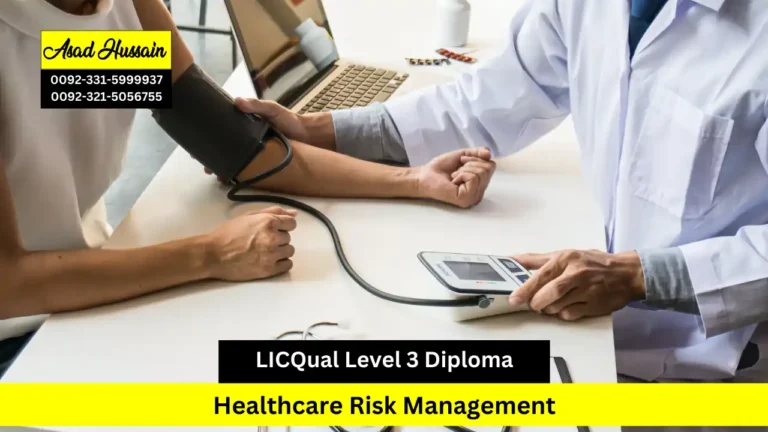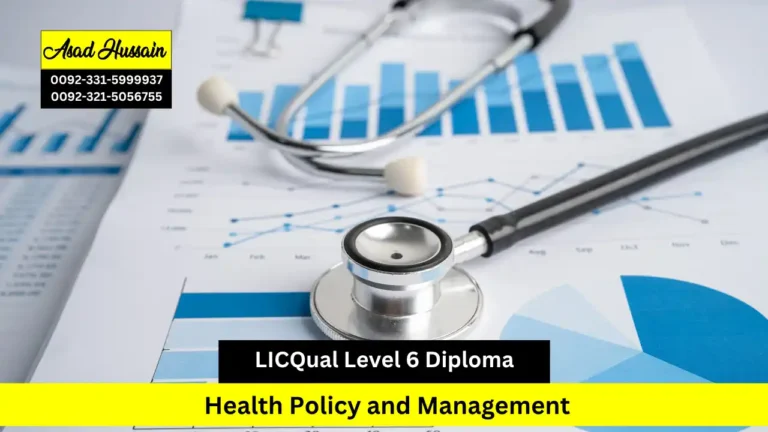In today’s fast-paced and dynamic business environment, the ability to effectively manage projects is a critical skill for any professional. Whether you are an aspiring project manager, a seasoned professional looking to enhance your skills, or a leader aiming to drive your organization’s success, the Qualifi Level 7 Diploma in Project Management offers a comprehensive and rigorous pathway to excellence.
The Qualifi Level 7 Diploma in Project Management is a prestigious and advanced qualification designed for individuals who wish to deepen their understanding of project management principles and practices. This diploma is equivalent to a Master’s degree and is recognized internationally, making it a valuable credential for professionals aiming to advance their careers in project management.
The diploma is typically delivered through a combination of online and in-person sessions, providing flexibility for working professionals. Assessments include a mix of written assignments, case studies, and practical projects, ensuring a comprehensive evaluation of your skills and knowledge.
The Qualifi Level 7 Diploma in Project Management is a powerful credential that can open doors to numerous opportunities in the field of project management. Whether you are looking to advance your career, gain a competitive edge, or pursue further education, this diploma provides the knowledge, skills, and recognition needed to achieve your goals. Invest in your future by enhancing your project management capabilities with this esteemed qualification.
Program Highlights
The Qualifi Level 7 Diploma in Project Management consists of 120 credits for the completed qualification.
Mandatory Units
- Planning, Controlling and Leading a Project
- Procurement Risk and Contract Management
- Project and Logistics Management
- Operations and Information Management for Project Managers
- Research Methods for project management
- Principles of Project Management
- Operations and Global Supply Chain Management
- Leadership and Professional Development
- Managing Risk, Uncertainty and Complexity in Projects
- Innovation in Project Management
- Project Management
The qualification has been designed to be accessible without artificial barriers that restrict access. For this qualification, applicants must be aged 19 or over and will be expected to hold the following:
- Level 6 Qualification or;
- First Degree
In the case of applicants whose first language is not English, then IELTS 6 (or equivalent) is required. International qualifications will be checked for appropriate enrolment to UK higher education postgraduate programmes where applicable. The applicants are normally required to produce two supporting references, at least one of which should preferably be academic.
Learning Outcomes for Study Units in Qualifi Level 7 Diploma in Project Management
1. Planning, Controlling and Leading a Project
- Understand the key principles and processes of project planning, controlling, and leading.
- Develop detailed project plans, including schedules, budgets, and resource allocations.
- Apply project control techniques to monitor and adjust project performance.
- Demonstrate effective leadership skills in project environments, including team motivation and conflict resolution.
- Evaluate project outcomes and identify areas for improvement.
2. Procurement Risk and Contract Management
- Identify and assess procurement risks in project environments.
- Develop strategies to mitigate procurement risks and manage supplier relationships.
- Understand the principles and practices of contract management.
- Apply best practices in negotiating, drafting, and managing contracts.
- Analyze the impact of procurement decisions on project success.
3. Project and Logistics Management
- Understand the principles of logistics management in project contexts.
- Develop and implement effective logistics plans to support project goals.
- Apply project management techniques to coordinate logistics activities.
- Evaluate the impact of logistics on overall project performance.
- Identify and address logistics-related risks and challenges.
4. Operations and Information Management for Project Managers
- Understand the role of operations management in project environments.
- Apply information management techniques to support project decision-making.
- Develop and implement effective operational plans for projects.
- Utilize information systems and technology to enhance project management processes.
- Evaluate the impact of operational and information management practices on project outcomes.
5. Research Methods for Project Management
- Understand the principles and practices of research in project management.
- Develop research questions and hypotheses relevant to project management issues.
- Design and conduct research studies using appropriate methodologies.
- Analyze and interpret research data to inform project management practices.
- Communicate research findings effectively to diverse audiences.
6. Principles of Project Management
- Understand the foundational principles of project management.
- Apply project management methodologies and tools to initiate, plan, execute, monitor, and close projects.
- Develop skills in scope, time, cost, quality, and resource management.
- Understand the importance of stakeholder management and communication in project success.
- Evaluate the effectiveness of project management practices and identify areas for improvement.
7. Operations and Global Supply Chain Management
- Understand the principles and practices of global supply chain management.
- Develop and implement strategies for managing global supply chains in project contexts.
- Analyze the impact of global supply chain decisions on project success.
- Identify and address risks and challenges in global supply chain management.
- Apply best practices in coordinating and optimizing supply chain activities.
8. Leadership and Professional Development
- Understand the principles and practices of leadership in project environments.
- Develop skills in leading and managing project teams.
- Identify and pursue opportunities for professional development in project management.
- Apply leadership techniques to motivate and inspire project teams.
- Evaluate the impact of leadership practices on project outcomes.
9. Managing Risk, Uncertainty and Complexity in Projects
- Understand the principles and practices of risk management in projects.
- Identify and assess risks, uncertainties, and complexities in project environments.
- Develop and implement strategies to mitigate and manage project risks.
- Apply techniques for managing uncertainty and complexity in projects.
- Evaluate the effectiveness of risk management practices and identify areas for improvement.
10. Innovation in Project Management
- Understand the principles and practices of innovation in project management.
- Develop and implement strategies for fostering innovation in project environments.
- Apply innovative techniques and tools to enhance project outcomes.
- Evaluate the impact of innovation on project success.
- Identify and address challenges and opportunities for innovation in project management.
11. Project Management
- Understand the comprehensive principles and practices of project management.
- Apply project management methodologies to initiate, plan, execute, monitor, and close projects effectively.
- Develop skills in managing scope, time, cost, quality, resources, and stakeholders.
- Utilize project management tools and techniques to enhance project performance.
- Evaluate project management practices and identify opportunities for continuous improvement.
The Qualifi Level 7 Diploma in Project Management is designed to cater to a diverse range of professionals and aspiring project managers. The course is ideal for:
1. Experienced Project Managers
- Objective: To formalize and enhance their existing knowledge and skills.
- Benefits: Deepen understanding of advanced project management concepts, gain a prestigious qualification, and improve career prospects.
2. Aspiring Project Managers
- Objective: To enter the field of project management with a solid foundation.
- Benefits: Acquire essential project management skills and knowledge, making them well-prepared for roles in various industries.
3. Senior Managers and Executives
- Objective: To oversee and manage projects more effectively within their organizations.
- Benefits: Learn best practices, strategic insights, and leadership skills necessary for driving successful project outcomes.
4. Consultants and Trainers
- Objective: To enhance their credibility and expertise in providing project management consultancy and training.
- Benefits: Gain a recognized qualification, deepen their knowledge, and improve the quality of their consultancy and training services.
5. Professionals Transitioning to Project Management
- Objective: To pivot their career into project management roles.
- Benefits: Gain comprehensive knowledge and skills needed for successful career transition, and earn a qualification that showcases their commitment to the field.
6. Recent Graduates
- Objective: To fast-track their entry into project management roles.
- Benefits: Build a strong foundation in project management, making them attractive candidates for employers looking for well-prepared project management professionals.
7. Entrepreneurs and Business Owners
- Objective: To manage projects within their own businesses more effectively.
- Benefits: Acquire skills to plan, execute, and control projects that drive business growth and success.
8. Individuals Seeking Career Advancement
- Objective: To achieve higher-level positions in project management.
- Benefits: Enhance their resume with a recognized qualification, and gain the knowledge and skills required for senior project management roles.
The Qualifi Level 7 Diploma in Project Management is a versatile and comprehensive qualification designed to meet the needs of a wide range of professionals and aspiring project managers. Whether you are looking to formalize your existing experience, transition into project management, or enhance your leadership capabilities, this diploma provides the knowledge, skills, and recognition to help you achieve your career goals.







